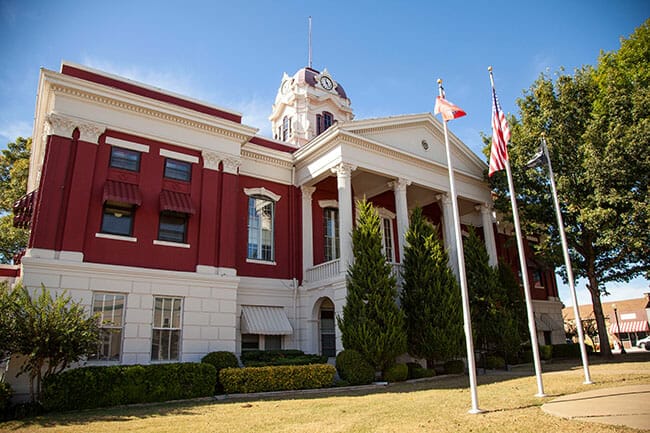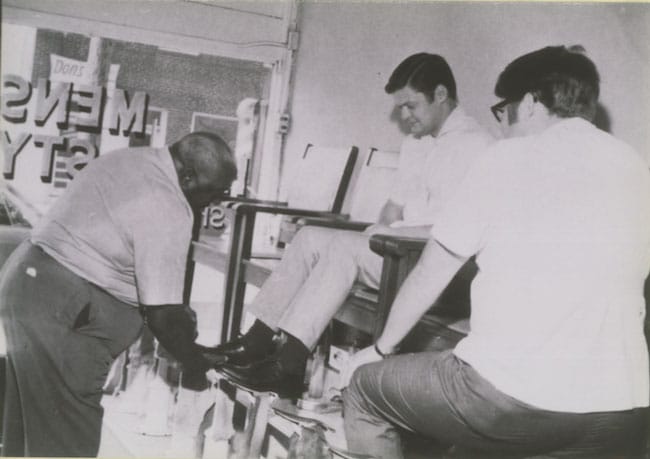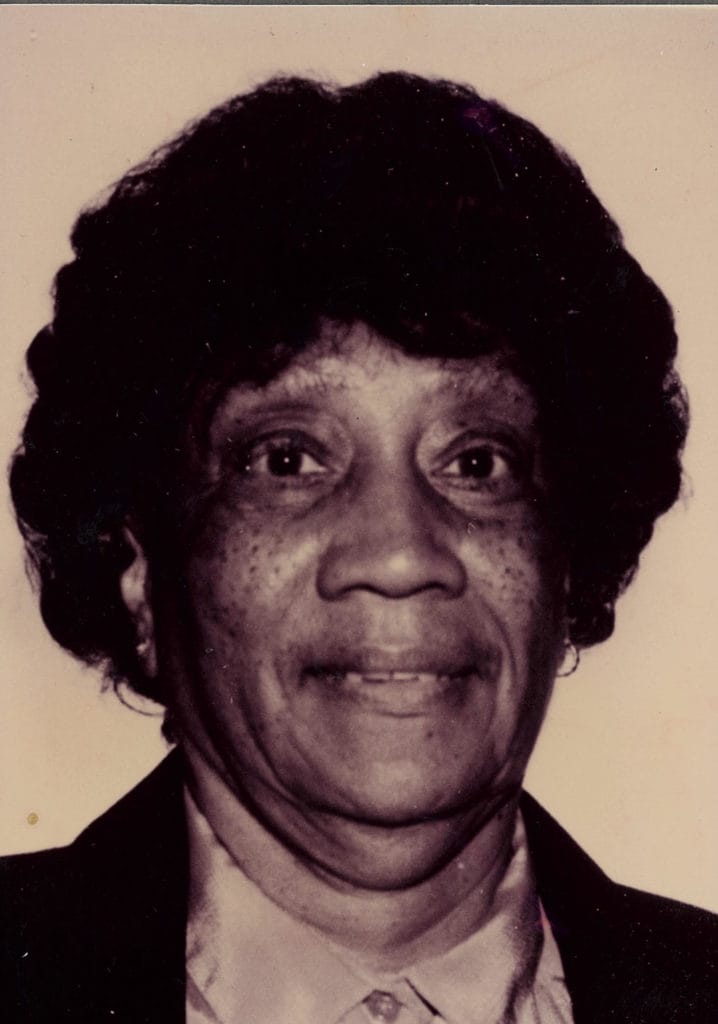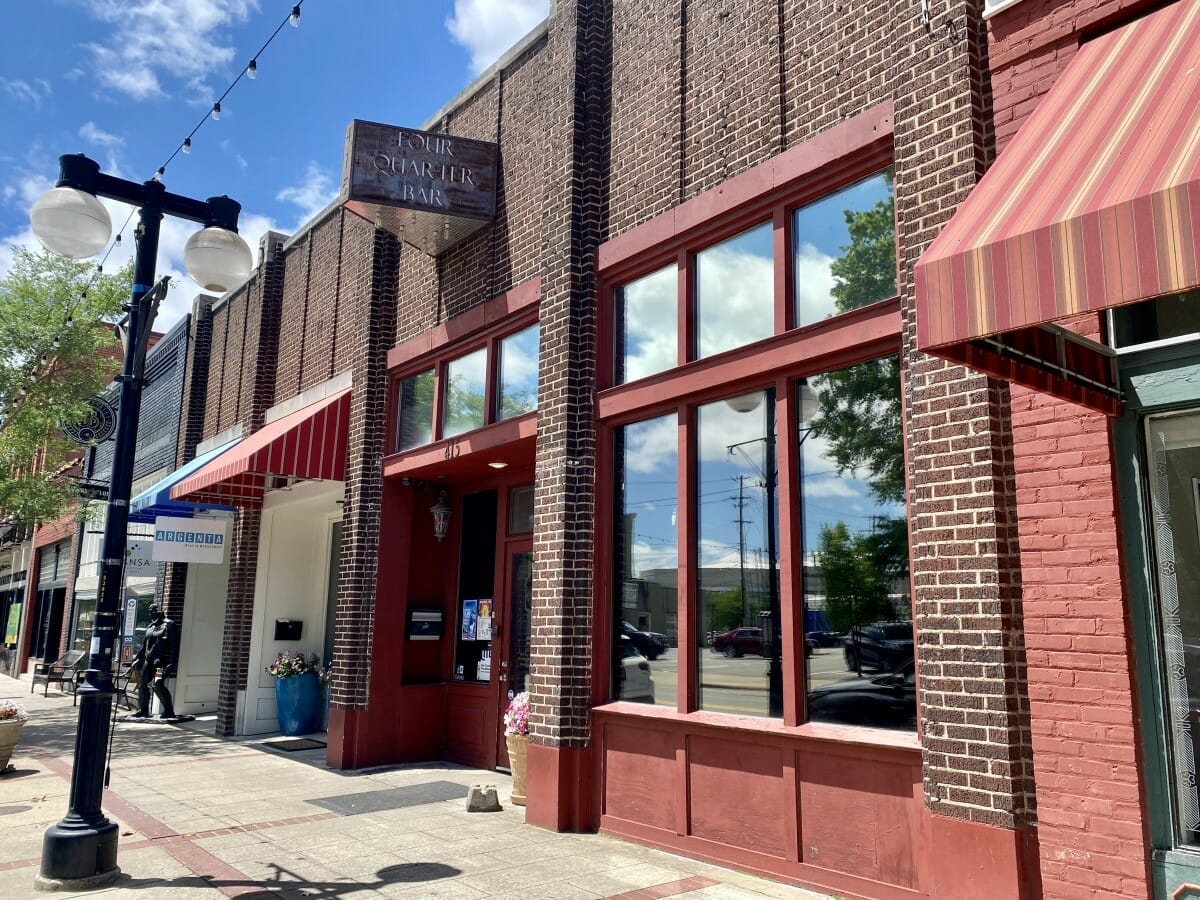

Uh oh...
It appears that you're using a severely outdated version of Safari on Windows. Many features won't work correctly, and functionality can't be guaranteed. Please try viewing this website in Edge, Mozilla, Chrome, or another modern browser. Sorry for any inconvenience this may have caused!
Read More about this safari issue.

A 90-year-old native shares glimpses into a vanishing past.
Growing up in late 1920s Fayetteville, Jessie Bryant had never heard of a digital video recording. Such technology was a long way off in an era when even film with sound was rare. But Bryant certainly knew the importance of relaying the past to new generations, just as her grandparents — former slaves — had done when they told her stories of their attempted escapes.

Last week, the Washington County Historical Society featured Bryant in its second annual video presentation of an interview with esteemed local natives of African-American descent. This digital video, locally produced using funds granted by the Black History Commission of Arkansas, reflects both the state’s past and the nation’s future.
By 2019, it’s estimated nearly 85% of the American’s Internet consumption will come in the form of video. A major reason: the majority of Americans like saving time. Many people find digesting information presented in moving images and sound to be easier and faster than reading text. This has profound ramifications for nearly everyone, including students of Arkansas history.
Some of the state’s public history institutes have already made moves toward a video-centric future. The Arkansas Studies Institute has a database of valuable digitized films. Meanwhile, in downtown Fayetteville, the Pryor Center for Arkansas Oral and Visual History recently completed construction of a new facility with a state-of-the-art multimedia interview recording room. Over the years, the Pryor Center has conducted numerous video interviews with Arkansas luminaries on a variety of topics. Here, for instance, former Razorback athletic director Frank Broyles discusses his experimentation with smoking corn silk.
The leaders of a few county historical societies, too, understand the importance of preserving history through video alongside traditional print for the sake of wider access by younger generations. That’s one reason why a Washington County Historical Society committee has for the last couple of years organized Black History Month events at the Shiloh Museum of Ozark History in Springdale.

Jessie Bryant, age 90, attended last week’s gathering and after mingling settled in alongside everyone else to watch the interview filmed in her home. In it, she discussed what pre-World War II life was like for her and other black Fayettevillians. It was not a large population, 300 or so black residents in the 1930s, and mostly contained to the east slope of Mount Sequoyah. The Great Depression was not as devastating to the livelihoods of most northwest Arkansans tied to farming and the service industries, yet Bryant still recalled having to make do with little. Shopping for clothes was a luxury. Instead, her grandmother used butcher paper for patterns. She then sewed Bryant’s clothes from used chicken feed bags.
Bryant also touched on her pet mule, “Pretty Boy,” which she used to try to take into her house when it rained, and she remembered going to a baseball game in Fayetteville to watch a barnstorming team from Kansas City play locals. There, she saw the great Negro Leagues pitcher Satchel Paige.
Here are some other vignettes from the interview, which is not yet online:
- Otis Parker, a local man who broke horses for a living, loaned his horses out to neighborhood children so they could ride for fun. Some of the younger ones had a tougher go it, Bryant recalled. “The only problem was when that horse was too tall.”
- Other entertainment came from Ralph Hayes, a Dickson Street shoeshiner who regaled locals with his outstanding trumpeting skills. “He had a couple little nephews, cousins or whatever. We called them “Bob” and “Pint.” Bob played the piano and “Pint” was the tapdancer. “He was better than Bill Bojangles Robinson,” recalled nonagenarian Fayetteville native Betty Davis in a separate phone interview.
- African Americans weren’t allowed to enroll in Washington or Benton County high school until integration in 1954. Instead, those who wanted a secondary school education had to travel to the nearest all-black high school, Lincoln High in Ft. Smith. Others traveled farther.
- At the age of 13 Bryant, for instance, packed up to school a year in Atlanta, Texas. She then returned to Arkansas and attended James C. Corbin High School, the prep school attached to what is now the University of Arkansas at Pine Bluff. “I was on the campus with college kids and older kids, so I grew up in a hurry,” she said, eliciting chuckles from the crowd.
- Bryant also recalled during her childhood only one doctor, Dr. Hathcock, and one dentist in Fayetteville would make house calls to patients in the African-American community. “They would allow you to pay them, or take what you had to offer,” she said. “Their price was not that expensive because they knew you didn’t have anything in the first place. They knew that if the neighborhood really needed a physician, they knew the part of their oath [stating] they would go.” If sick residents could not get the doctor, then the next best treatment often came from neighborhood women who had worked as midwives.
Later in life, Bryant herself carried on the mission of providing medical care to poor northwest Arkansas residents. In 1985, she established the Northwest Arkansas Free Health and Dental Center. She was urged to run for Quorum Court and to become the first African-American woman to hold that position in Washington County. She decided to go for it, thinking “If I win, I win. If I lose, I win because I’ve opened the door for somebody else.”
Bryant won, and served 17 years a justice of the peace.
“You know that old saying ‘stay in your place?’, Bryant said, after the standing ovation which capped the presentation of her video.
“I never knew where my place was.”
Fayetteville resident Ocie Fisher sings Georgia on My Mind in front of Jessie Bryant and others at the Shiloh Museum of Ozark History.
***
Support Evin Demirel’s mission to preserve Arkansas’ statewide African-American past by visiting his black sports history project Website and his petition to get the Arkansas Democrat-Gazette’s Untold Stories back into print.
We do the work.
You check your email.
Sign up for our weekly e-news.
Get stories sent straight to your inbox!










 Leave a Reply
Leave a Reply
[…] Razorbacks of the 1930s” piece (illustration above) — are the same mentioned in this OnlyInArk.com feature I wrote on the history of the the African-American community in […]